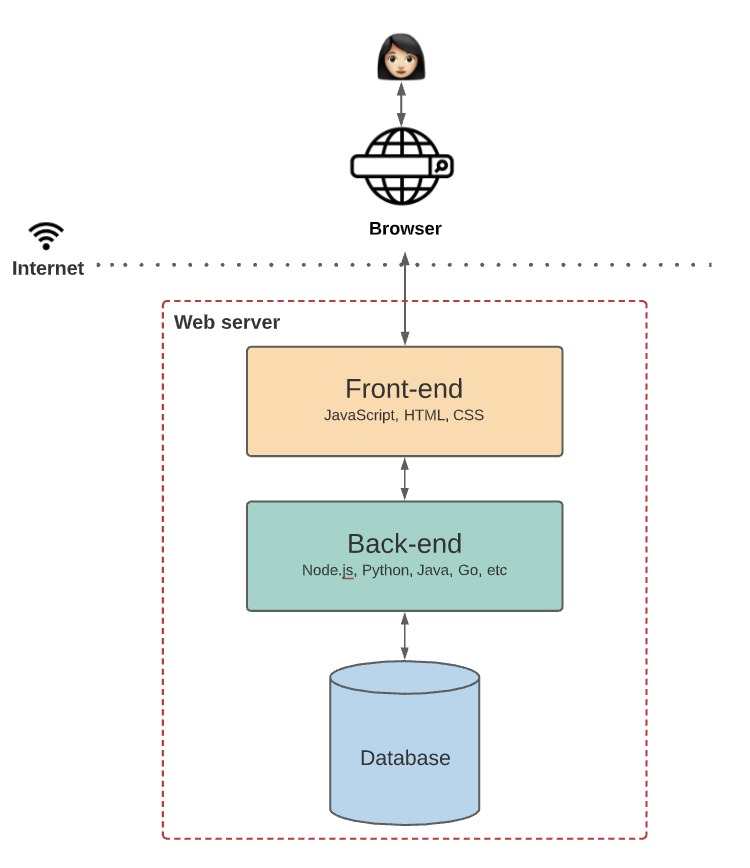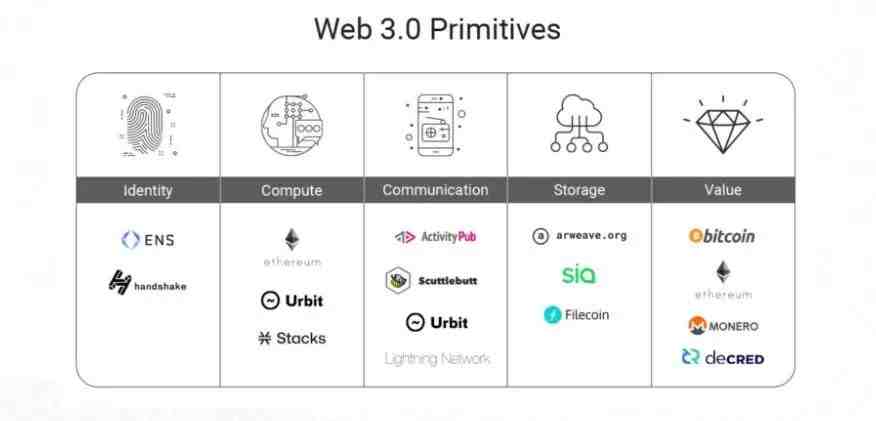Nowadays, in the SEO world, it is sometimes more complicated than ever to figure out what’s hot and what’s not when it comes to SEO terminology, phrases and words.
As brands and marketers start adopting Web3, the next generation of web terms comes and goes.
To make sure you are on top, we’ve used the minds of industry-leading SEO and digital marketers to analyze overused, underrated, and promising SEO words.
Just as styles change with the seasons, SEO changes with algorithms and the modern day.
What may have been last season’s must-have slogan could be this year’s red flag awaiting a penalty from Google.
Are we still talking about wearing black and white caps? Is it still a predominantly male-dominated, exclusive industry? Press releases still a tactic or a strategy?
Some SEO words just ended up classifying them as overused, overvalued, and in some cases simply exaggerated.
Next-Gen SEO World Of Words
Contents
- 1 Next-Gen SEO World Of Words
- 2 SEO: The Most Overused SEO Word Ever?
- 3 DELETE: SEO Words That Just Need To Go Bye Bye
- 4 SEO Words To Add
- 5 Who Thinks What & Why
- 5.1 Kelsey Jones, SEO Content Leader
- 5.2 Heather Lloyd-Martin, SEO Copywriting Expert and Trainer
- 5.3 Victoria Edwards, Online Marketing and Social Media Manager
- 5.4 Carrie Hill, Local SEO Analyst
- 5.5 Lily Ray, SEO Expert by Day, DJ by Night
- 5.6 Rebecca Murtagh, Author of Million Dollar Websites
- 5.7 Joy Hawkins, Google My Business Expert
- 5.8 Melissa Fach, SEO Consultant, Community Manager, and Editor
- 5.9 Virginia Nussey, Director of Marketing at MobileMonkey
- 5.10 Eric Enge, SEO Expert, Author, and President of Pilot Holding
- 5.11 Joe Laratro, SEO/PPC Expert and President, Tandem Online Marketing Solutions
- 5.12 Marty Weintraub, Internet Marketing Expert and Founder of aimClear
- 6 Conclusion
- 7 What is the ideal keyword density?
- 8 How many keywords is too many for SEO?
- 9 How do I generate keywords for SEO?
- 10 When writing content How many keywords should you Optimise around 1/5 or 10?

As they enter the Web3 era, also known as the next generation of the internet, marketers and brands need to adapt to it.
In addition to Web3, brands of all sizes must focus on diversity, equity and inclusion as a checkpoint in strategy, leadership and culture.
Including content and including accessibility, equality, equal pay, working from home etc. are not just buzz words. They are the new norm when it comes to keywords, culture and innovation,
In a recent interview with the Search Engine Journal with Rachel Heseltine, she shared her story of emerging as an SEO specialist and her thoughts on the impact of diversity on leadership and more.
Public relations and media coverage continue to positively impact SEO as the results come from link gains to positive SEO jumps thanks to brand mentions in the media.
Let’s also be on the radar of what SEO in metaverse will look like when Google tiptoes to one of the biggest Google Trend slogans of 2021: “metaverse”.
As we enter the world of Web3, terms like decentralization, privacy, and blockchain will only increase in popularity.
For the average person, SEO has been a bit of a mystery how it works, how long it takes, and who the expert is.
Using outdated terms and language can be a sign of incompetence, ignorance, or transformation and modernization.
When we asked leading SEO specialists which words needed to be eliminated, the most misused word for SEO is… SEO.
SEO: The Most Overused SEO Word Ever?

This is why you can’t be everything to everyone.
SEO is not magic and it is not a slogan.
“The word SEO is not bad in itself,” said content marketing consultant and SEO expert Kelsey Jones. “But shady agencies use vague terms so as not to be transparent to clients about the actual work they are doing on their website.”
“I have small business owners coming to me asking for ‘SEO’ and assuming they will magically make them number one in search results, just because other SEO practitioners have said it’s possible within a few months . As professionals, it is simply not appropriate to use people who have no idea what you are talking about, ”added Jones.
“I also find the term ‘content’ a bit confusing and misunderstood as many business owners or executives do not understand the blood, sweat and tears it takes to create content from initial idea to research, writing and promotion.
They believe that anyone can create “content”, but to be effective you need a team of professionals who know how the whole process works. “
Considering SEO’s birth dates back to 1997, which means it’s just over 20 years old, there’s still plenty of adolescence.
We went from birth to infancy, middle school, teenage years and graduated.
SEO in the early years was quite simple.
The game was all about manipulating the search results.
Now that SEO is in the mid-20s, things are starting to mature and getting serious.
As SEO grows, so does vocabulary, terminology, and best practices.
In today’s post-pandemic, complex, and rapidly changing world of digital marketing, change is a way of life. That’s true. If search engine marketers had to choose a specialization, that would be the “change expert”.
What worked last year is old news and what was amazing five years ago is ancient history in Google’s years. Contrary to fashion, outdated SEO terminology is not making a comeback.
Optimizing to get results on the first page of Google in search results requires a “adapt or die” attitude.
To keep up with the changes, here are 26 SEO words that industry professionals would like to remove, die and say goodbye.
DELETE: SEO Words That Just Need To Go Bye Bye

SEO Words To Add

Who Thinks What & Why

SEO words to remove and SEO words to add in 2022 and beyond.
Kelsey Jones, SEO Content Leader
Let’s look at the word “content.”
The term “content” is a bit confusing and misunderstood as many business owners or CEOs do not understand the blood, sweat and tears needed to create content, from the initial idea to research, writing and promotion. They believe that anyone can create “content”, but to be effective you need a team of professionals who know how the whole process works.
Heather Lloyd-Martin, SEO Copywriting Expert and Trainer
My pet is annoyed by a deadline that has to go?
At least once a week, I get an email from an SEO developer complaining that his client wants a keyword density of X% – which disrupts the flow of content.
Yes, in the past (over 20 years ago) we needed 5.5% density of key phrases to position ourselves in Alta Vista.
Today, Google said keyword density is not a ranking factor.
Randomly inserting keywords into your content will not help with SEO. However, I still see companies (and some SEO tools) pushing for a specific keyword density because they think that’s what Google wants.
This really annoys me because it clearly isn’t. Who only knows how our business will change due to the net neutrality situation, but I’m sure we’ll find another way to provide our consumers with the content they are looking for.
This one gets me and feels a bit abused. Maybe the phrase digital marketing should take over.
Yes, outgoing is different from incoming, but we have to deal with it and try something different.
This is my favorite overused phrase. Agree that content can be king. You have to take into account that if your website isn’t optimized, the content isn’t strong and you don’t have a decent budget to promote it… that’s not king. People just won’t see the content.
Carrie Hill, Local SEO Analyst
“Essential” SEO word to add:
I would add the word “TESTING” in really big bold letters. I think a lot of SEOs talk about testing, but very few implement, test, improve, and learn with measured scientific tests.
What worked and what didn’t? How can we better design our test? How can we improve our results?
In my opinion, rule number one in testing is “be prepared to make a mistake”.
I think there is a lot of ego in the SEO industry and many cannot deal with the mistake of theory or tactic they have been using (and heavily promoting) since LAT.
Ravens are hard to eat – but if that makes my customers more money – I’ll add ketchup and fumble.
Lily Ray, SEO Expert by Day, DJ by Night
SEO tools coined the term “toxic backlink” and now the industry has overdid it in assigning relevance and weight to that score.
However, the same SEO tools that measure “toxic links” mostly just look at spammy links that are completely ignored by Google.
Every site has spammy links, and Google knows it. True “toxic” links are links that violate Google’s guidelines and are generally difficult to identify by SEO tools.
This “toxicity score” concept is confusing for both SEO and website owners.
Another metric created by SEO tools has been completely exaggerated.
While Google probably uses some version of the domain-wide authority rating, we don’t have access to these metrics, and DA is certainly not that.
EAT assessment / algorithm / algorithm update
EAT is extremely important, but using terms like “EAT score”, “EAT algorithm” or “EAT algorithm update” greatly simplifies what the EAT actually does and how it works. The term EAT is probably used in all of Google’s organic algorithms, but it can’t be boiled down to a simple result in the same way as it is with Core Web Vitals.
In addition, no single algorithm update focused solely on EAT, although it played an increasing role in algorithm updates in recent years.
I was probably even guilty of using these words in the past.
However, in an era of brand democratization, where customers are part of the brand’s history, search results favor brands when customers say they are the best or the best in their offer.
So let your customers and viewers have their say!
It’s time to take the softer side of SEO!
Customers become emotionally attached and fiercely loyal to the brands they love. So the words will vary by brand and market.
To attract the most qualified visitors to your site from search engine results, brands can use two key content and snippets in the hope of making it to the SERP:
For example, an Apple fragment reads: Discover the innovative world of Apple and buy …
Customers are loyal to the Apple brand because they are connected and constantly expect brand innovation.
Using call-to-action (CTA) brand differentiators such as “discover” and “store” promotes action (click!).
When SEO gets more human, everyone wins!
Joy Hawkins, Google My Business Expert
Since Google recently changed its name to Google My Business, we should add a new name: Google Company Profile.
The frustrating thing about this rebranding is that it sounds very silly when you abbreviate it to GBP because Google thinks you are talking about the British Pound.
It will take a lot of practice to get used to saying your Google company profile instead of GMB.
Agree with “Link Juice” on the words to be removed. I can’t stand what the word sounds like and usually choose something like “link power” or “link equity” instead.
Melissa Fach, SEO Consultant, Community Manager, and Editor
“Do it and you will be successful.”
Anyone who writes and gives advice must stop saying this.
There are too many variables to consider when it comes to SEO to guarantee someone will be successful if they copy your strategy.
As an editor, I always remove these false promises from my articles.
Virginia Nussey, Director of Marketing at MobileMonkey
Could this concept die? You are either:
I was thinking about ways to adapt to Artificial Intelligence (AI) technology. Google’s RankBrain has had a significant impact on SEO.
First, writers and SEOs need better tools to identify long and voice search queries.
We can use Google Suggestions and “People Ask too” along with the most frequently asked questions from Answer the Public – but what else can we do in response to the effects of AI on search engine search and behavior? It was very important to me and will be in the future.
With all the work Google is putting into generating snippets, it looks like the usability of meta descriptions will soon disappear 100%, if it isn’t already.
For now, I would still optimize your meta description, but I suspect that in a year or two we will get confirmation that it doesn’t matter anymore.
I have no confirmation, but I am speculating, given how much work Google puts into extracting snippets, I believe the need for meta descriptions will disappear.
SEO Words Trending In:
OK, I know people are talking about it already, but I don’t think everyone really understands how important it is.
The real story with the highlighted snippets will be told when more than half of all queries are passed over by voice, and most people will get their only answer from a verbal SERP – SERP that has only one answer, and that answer will be taken from what we call featured snippet today.
Too many people focus solely on outdated ranking signals such as content and links. These are still important, but it’s also important to put a broader perspective on how your brand is perceived on the Internet.
Google has repeatedly told us that it is trying to browse our sites as users do. What does that really mean?
If users want to see brand results for a given query, that’s what Google will return. If users want to see the market, Google will return it in the SERP. If users want to see review sites, Google will refund that.
If you don’t get a particularly good result for a given query, they won’t refund you.
How does Google figure it out? Not only by analyzing the content, as you may have pages that relate to a given query, you still can’t be the company that users want to interact with in relation to that query.
You may get links to your site that say you are authoritative for this query, but the presence of these links does not mean that users want you as well.
Try it: Engage in branding and advertising campaigns, or be actively involved or create online conversations about your brand related to your query.
This is a clear sign that consumers consider you relevant to the query.
Joe Laratro, SEO/PPC Expert and President, Tandem Online Marketing Solutions
“Unprecedented” must go.
We should remove “unprecedented” from our SEO dictionary today. I say this for Covid, March 2020 – March 2022. Some industries flourished on the Internet during the pandemic.
These numbers just don’t last.
Today’s results have to be judged against the years before the Great Covid Migration (the mass of migrants that spurred every home services industry).
Maintaining last year’s numbers could be this year’s success.
The challenge for marketers today is to make sure KPIs are realistic.
Add these words to your current SEO conversation:
Inflation and the cost of quality must be added to the discussion of SEO.
The last two years have changed the landscape of search engine marketing professionals more than we’ve seen since the Google Penguin update.
Working from home scenarios opened local workers to international companies.
The value of a good search engine optimization specialist has increased due to the shortage and availability of positions. High quality has always cost more. It costs more in 2022.
Agencies must ensure that service prices reflect rising costs. Customer-side marketers cost more, so these companies have to pass these costs on to their goods as well.
Storytelling was one of the most famous dates of 2017. I think it should stay in 2017.
While storytelling is of great value, it’s just another form of generating engaging, high-value content.
It’s an old concept, but it occupies a larger place in today’s world of optimization than it may have ever been before.
Advances in SERP with incredibly relevant and tailored results make targeting specific keywords very difficult.
A broad approach to SEO that takes into account all aspects of current best practices and technologies (amazing user experience, speed, mobility) should be an ongoing commitment.
Marty Weintraub, Internet Marketing Expert and Founder of aimClear
Linkbait, PageRank, Cloaking, Matt Cutts
They are just seriously overrated.
Weintraub provided the Sysomos MAP word cloud for public, organic Twitter tweets showing semantic usage statistics. Weintraub noted that these words also appear in SEO tweets.
Conclusion
Don’t get caught up in outdated words and terms.
As SEO enters the third decade, new generations are redefining the search engine marketing industry. Innovation, technology and culture are influencing new behaviors.
All marketers need to be educated and aware of trends and algorithms to attract the best talent, obtain the best results, and stay up-to-date with Google best practices and updates.
What SEO words can you add to this story?
Featured photo: Vasina Natalia / Shutterstock
Photo in mail number 1: Marty Weintraub. Used with permission.
What is the ideal keyword density?
What is good keyword density? While there are no hard and fast rules for keyword density other than the always-relevant “don’t do keywords”; Tips, many SEOs recommend using around 1-2 keywords for every 100 words of text. This translates into around 1-2% of the keyword density.
What is high keyword density? For example, if a keyword appears three times in 100-word text, the keyword density will be 3%. From a search engine perspective, high keyword density is a good indicator of search engine spam.
How much keyword density is necessary for optimization?
Is there an optimal keyword density? There isn’t an ideal percentage of keyword density to achieve when it comes to content optimization, but many SEO specialists suggest that 1-2% is a reasonable target. This percentage means you are placing your target keyword approximately one to two times out of every 100 words of your content.
How do you optimize keyword density?
- Example: Calculate keyword density. …
- An example of keyword stuffing. …
- Assign a main keyword to each website. …
- Write more than 300 words. …
- Add additional keywords, LSI keywords, and long-tail keyword variations to your copy. …
- Add a keyword in the right page elements. …
- Use the appropriate keyword density in your copy.
How much keyword density is good for SEO?
What is good keyword density? While there are no hard and fast rules for keyword density other than the always-apt “don’t use keywords” advice, many SEOs recommend using around 1-2 keywords for every 100 words of text. This translates into around 1-2% of the keyword density.
How many keywords should you optimize for?
You should concentrate on two or three keywords for each page as an absolute minimum. This includes one main keyword and two closely related queries. If you can focus on more keywords while making your content sound natural, try optimizing for more SEO keyword variations.
What is a good keyword density?
What is good keyword density? While there are no hard and fast rules for keyword density other than the always-apt “don’t use keywords” advice, many SEOs recommend using around 1-2 keywords for every 100 words of text. This translates into around 1-2% of the keyword density.
What is keyword density 1 point?
Keyword density refers to the number of times a keyword appears on a given web page or content as a ratio or percentage of the total number of words. This is also sometimes referred to as the keyword frequency or the frequency with which a specific keyword appears on a website.
What is the average keyword density?
As mentioned above, the average keyword density for the entire page drops by around 30%. This number may go up or down depending on the industry in which you are writing. For example, less text would be available if I tried to write about “bobbleheads” instead of general information about them.
Does keyword density still matter?
The short answer is yes. It really does matter. There is actually a term to describe keyword density.
What is the average keyword density?
As mentioned above, the average keyword density for the entire page drops by around 30%. This number may go up or down depending on the industry in which you are writing. For example, less text would be available if I tried to write about “bobbleheads” instead of general information about them.
What is a good keyword density score?
Most SEO experts believe that the ideal keyword density is around 1-2%. This means that your target keyword appears one to two times out of 100 words. At this rate, the keyword pops up enough times to show search engines what the page is about without getting involved in keyword stuffing.
Is high keyword density bad?
The higher the keyword density, the more likely the entire page is to be on that topic. Therefore, paying attention to keyword density is still important to SEO. But unlike in the past, it’s more of a general copy context, and don’t use the term as many times as you can.
How many keywords is too many for SEO?
Each keyword should be strategically chosen and placed. Remember not to exceed 20 keywords per page, whether or not the ideal keyword density matches the amount of content. Before making your choice, you should research all the keywords.
How many SEO keywords should I have? You should focus on one main keyword per page while considering two or three variations of SEO keywords. Each of your pages should focus on one topic, including the most important keywords for SEO purposes. So choose from one to three keywords for each page.
How many keywords is too many Google ads?
The best rule of thumb is to use no more than 20 keywords per ad group. Occasionally, you can use a few additional keywords, but if you exceed the 20 keyword limit, your ad text doesn’t match your search keyword as closely as possible.
How many clicks is good for Google ads?
What is the average click-through rate for a PPC ad? The average click-through rate for Google AD ads in paid search results is around 2%. Therefore, anything above 2% can be considered above average CTR. CTR will be lower on the Display Network, so it’s important to take advantage of tempting display creatives.
Are more keywords better Google ads?
Broad match keyword targeting has great potential. For example, in the health and wellness industry, you’ll generate 94% more clicks if you target these broad-matched keywords. The broad match keyword also means that your ads will show regardless of what the potential customer intends to do.
How many keywords can you have in an ad group?
Now, depending on who you ask, you’ll hear a different answer to the age-old question: “How many keywords should I have in my Google Ads account?” When it comes to ad groups, a typical answer is somewhere in the range of 20-25 keywords and definitely no more than 30 keywords per ad group.
How many keywords is too much?
How many keywords are too many? The ideal keyword density that both readers and search engines prefer is around two to five percent. Even for longer snippets, best practice is not to exceed 20 uses per page.
How many keywords are good for SEO?
Most small businesses recommend targeting around 5 keywords (each with 100 searches per month) to start with. This may not seem like much for some businesses, but targeting 5 keywords doesn’t mean your site will only rank for 5 keywords and get traffic from 5 keywords.
Can I have too many keywords?
It sounds almost counter-intuitive, but it is actually possible to have too many keywords. And if you think about it, I guarantee you can give some examples. We’ve all read content where we see different repetitions of the same phrase repeated too many times, often in a way that seems clunky or out of place.
How many keywords are enough?
You should concentrate on two or three keywords for each page as an absolute minimum. This includes one main keyword and two closely related queries. If you can focus on more keywords while making your content sound natural, try optimizing for more SEO keyword variations.
Is there a limit to SEO keywords?
There is no official limit to the number of key meta tags you can have. Each search engine has its own rules. However, it is good practice to have less than 10% of all words on the page. For example, if your page is 300 words long, you’d better have a maximum of 30 words in your keyword meta tag.
How many times should an SEO keyword appear?
Overall, many SEO specialists agree that a keyword shouldn’t appear more than once in every 200 words of text. This means that for every 200 words of text on a page, a given keyword should not appear more than once.
Can SEO keywords be more than one word?
Strictly speaking, a keyword means one word. When the first search engines were launched, they had relatively simple algorithms, and many users used single words to search. But search engines handle large keyword phrases with at least two keywords.
How do I generate keywords for SEO?
- Step 1: Make a list of important, relevant topics based on what you know about your business. …
- Step 2: Fill in these topic groups with keywords. …
- Step 3: Understand how intention affects your keyword research and analyze it accordingly. …
- Step 4: Investigate related search terms. …
- Step 5: Use your keyword research tools to your advantage.
When writing content How many keywords should you Optimise around 1/5 or 10?
How many keywords should you use to be the most successful? You can optimize for 3, 4, or even 10 target keywords on one page. Just make sure you don’t disturb the flow and consistency of the song. Basically, each keyword needs to make sense to be on the same page as your main keyword.
How many times should the keyword appear in the content? Overall, many SEO specialists agree that a keyword shouldn’t appear more than once in every 200 words of text. This means that for every 200 words of text on a page, a given keyword should not appear more than once.
How many keywords should you optimize for?
You should concentrate on two or three keywords for each page as an absolute minimum. This includes one main keyword and two closely related queries. If you can focus on more keywords while making your content sound natural, try optimizing for more SEO keyword variations.
How much keyword repetition is optimal?
There are different schools of thought when it comes to optimal keyword density. For some, it ranges from 0.5% to 0.8%. Some experts would like this number to be higher; from 0.5% to 2.5%. However, most experts would agree that ideally it should be less than 3%.
How many keywords is too much?
How many keywords are too many? The ideal keyword density that both readers and search engines prefer is around two to five percent. Even for longer snippets, best practice is not to exceed 20 uses per page.
How many keywords should you track for SEO?
Tracking 1-2 keywords per page can be a good start. Second, finding your competitors’ keywords is helpful. Most customers want to beat their competitors with the keywords they are ranked for. Therefore, it is recommended to optimize and track the keywords of competitors that have a large number of searches.



